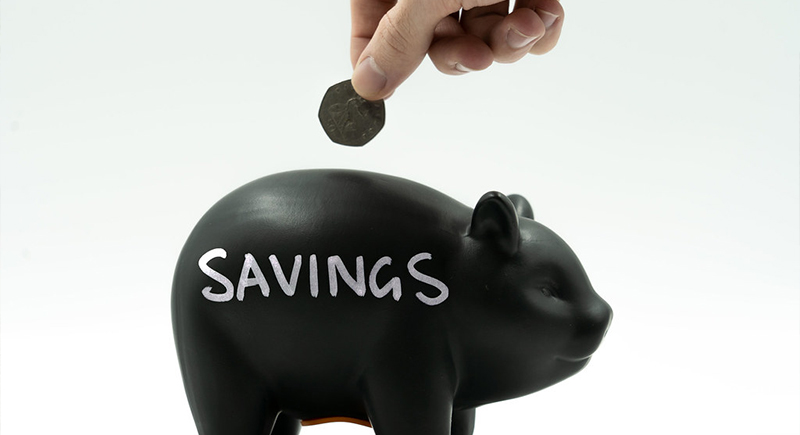12 Ways Your Childhood Affected Your Wealth as an Adult
Our childhood experiences play a surprisingly significant role in shaping who we are as adults, including our relationship with money. From how our parents handled finances to the messages we received about wealth and success, our upbringing can have a lasting impact on our financial habits and decision-making. Here are some of the most impactful ways your childhood might have secretly influenced your wealth as an adult:
The “Scarcity Mindset” vs. The “Abundance Mentality”

Credit: pexels
Did your parents constantly worry about bills, or did they always seem to have enough? Growing up with a scarcity mindset, where money feels limited and fleeting, can lead to financial anxiety and risk aversion in adulthood. Conversely, an abundance mentality, fostered by a sense of security and opportunity, can encourage saving, investing, and pursuing wealth-building strategies.
Open Communication About Money

Credit: pexels
Were your parents open and honest about finances, or was money a taboo topic? Children who grow up with open conversations about budgeting, saving goals, and responsible spending are likelier to develop healthy financial habits.
The Value of a Dollar (or a Dime)

Credit: pexels
Did you receive a regular allowance or have to earn money for everything? Learning the value of money through experience, whether through chores or an allowance, can instill a sense of responsibility and encourage saving habits in adulthood.
Delayed Gratification vs. Instant Needs

Credit: flickr
Were you taught to save for things you wanted, or did you get them right away? The ability to delay gratification, a concept often learned in childhood, can translate to better financial decision-making later in life. Learning to prioritize saving and planning for larger purchases can lead to more responsible financial choices.
Debt: A Burden or a Tool?

Credit: pexels
Did your parents use credit cards responsibly or struggle with debt? Witnessing the negative consequences of excessive debt can make you more cautious about borrowing in adulthood. On the other hand, seeing responsible credit card use for building rewards or financing large purchases can shape a positive view of debt as a financial tool.
The Power of Education (and Student Loans)

Credit: pexels
Did your family emphasize the importance of higher education, even if it meant student loans? While student loan debt can be a burden, a college degree can also lead to higher earning potential throughout your career. The childhood value placed on education can influence your future financial security.
Materialism vs. Experiences

Credit: pexels
Did your family focus on acquiring possessions, or did they prioritize experiences? A childhood centered around experiences like travel and family outings can lead to a less materialistic mindset and a focus on living within your means in adulthood.
Entrepreneurial Spirit

Credit: pexels
Did your parents run their own business, or were they more traditional employees? Even if it wasn’t your family’s path, exposure to entrepreneurship can spark an interest in taking financial risks and building wealth through business ownership.
Delayed Financial Independence

Credit: pexels
Did you move out on your own when you were young or stay at home longer? Living with family and delaying financial independence can allow for more aggressive saving habits once you do strike out on your own. However, learning to manage bills and living expenses early on can also be beneficial.
Impulse Buying vs. Planned Purchases

Credit: pexels
Did your parents make impulse purchases, or did they plan and budget for larger items? Observing responsible spending habits can translate to a more thoughtful approach to money management in adulthood.
Charitable Giving

Credit: pexels
Did your family donate to charity or volunteer your time? Exposure to philanthropy in your childhood can plant a seed of social responsibility and encourage you to prioritize giving back financially in your adult life. Witnessing the act of giving can foster a sense of purpose and a desire to contribute to a cause greater than yourself.
Financial Planning Role Models

Credit: pexels
Did you have any family members who were particularly good at managing money? Having positive financial role models in your childhood can inspire you to adopt similar habits and strategies. Observing responsible budgeting, saving, and investing practices can provide a valuable blueprint for your financial future.
Unexpected Windfalls

Credit: iStockphoto
This one might sound surprising, but hear us out. Did you receive a large inheritance or unexpected financial windfall as a child? While a financial windfall can be a blessing, it can also lead to poor money management habits if not handled responsibly. Learning how to manage a sudden influx of wealth can be a valuable life lesson, but it requires guidance and responsible decision-making to avoid squandering the opportunity.
Budgeting Basics

Credit: iStockphoto
Did your parents involve you in budgeting discussions or teach you basic financial concepts? Learning about budgeting and saving strategies early on can equip you with the tools to manage your finances effectively as an adult. People often tend to underestimate this, but understanding the difference between needs and wants and creating a plan for allocating your income can empower you to make informed financial decisions for life.